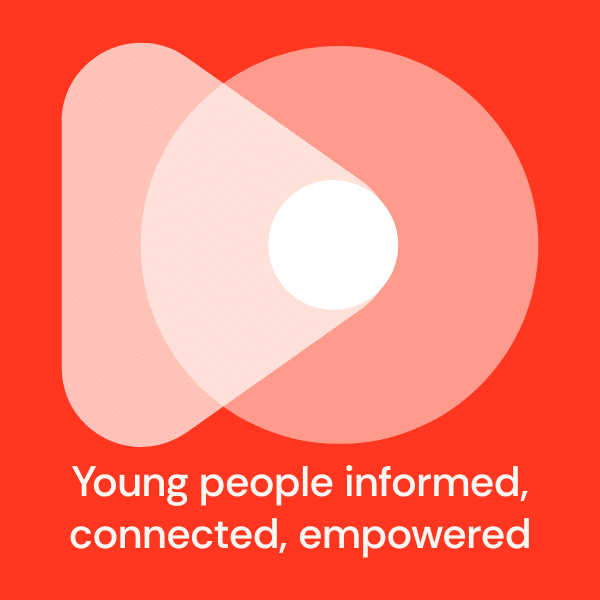To succeed in journalism, and most other careers, you need to be able to meet deadlines. How hard can that be?

A reporter struggles to meet a deadline. (Illustration by News Decoder)
Journalists, and most other professionals, work under deadlines. That means that they have a task to complete and there is a date, and maybe a specific time, it must be completed.
Meeting a deadline was crucial in the old days of newsprint. The newspaper had to get to the subscriber’s front door or driveway by first thing in the morning. For that to happen, the newspaper had to get to the delivery people.
That meant it first needed to get printed — after an entire editing and layout process. If the reporter didn’t meet the deadline, the story wouldn’t make it into the paper in time, and if the editor didn’t have a back-up plan, there would be a big empty space on a page. (There was always a back up plan. But if a reporter put an editor into that situation, the reporter would be out of job.)
With digital publications, the deadline isn’t as set in stone. There are no printers and delivery people waiting. News is produced and distributed on a 24-hour cycle. Stories can go up on the site anytime.
Still, your editor isn’t expected to have to edit your story when they’re supposed to be picking up their kids from daycare or playing football with their buddies. Deadlines ensure that everyone knows when they are expected to work.
Meeting deadlines can keep you working.
If you work freelance, which means you don’t have a staff position but instead get paid by a publication only when they publish a story, deadlines mean everything. If you miss a deadline without giving the editors advance notice, the publication won’t take stories from you in the future.
When you can meet deadlines, not just consistently but always, you earn a reputation for reliability. I’ll argue that in journalism, reliability is more important than talent. An editor will turn to a reliable reporter and writer over and over, but will think twice about turning to someone brilliant but unpredictable.
So, how can you become that person who can always meet deadlines? At News Decoder, we work with many freelancers and journalists-in-training. One of the first things they ask when I tell them I like their story pitch is this: When do you want the story?
💡 More Tips Like This
This story is part of News Decoder’s open access learning resources.
Whether you’re a secondary student, studying at university or simply interested in learning new things, we can help you build your journalism skills and better understand big global issues.
If you are a student or a member of a News Decoder Club, check out our other learning resources.
If you are a teacher, check out our other classroom resources:
- News in the Classroom
- Educator’s Catalog of classroom exercises
And ask us about joining the News Decoder Club program.
I always respond the same: Give me a deadline you feel you can comfortably meet and then I can put it on our publishing calendar. What I don’t want is for the person to give me an early date and then not be able to meet it.
So, how does a reporter writing a story for News Decoder come up with that deadline? It comes down to “doability”. That means what it says: what you can do, what is feasible. In determining doability, it helps to look at the opposite: Something that isn’t doable.
Some things are difficult.
What makes something not doable? The idea for the story is great, but realistically you won’t be able to interview anyone for it. Wouldn’t it be great to do a story on Russian hackers? But do you know any Russian hackers or anyone who knows Russian hackers? What about a story on the wealthy people giving money to political campaigns? Again, do you know anyone or can you realistically reach anyone who would give you information about that?
In assessing the doability of a story, the first question to ask, then, is where your information will come from. You might not need to know key sources personally, but you need a way to be able to reach them and a reason to feel confident that they will talk to you.
The second criteria is your financial wherewithal. To find the information, will you need to travel to get it? Do you have the money and time to do that?
Third, if the subject deals with an uncomfortable subject — sexual assault, race, abortion, religion or suicide, for example — do you have the emotional resolve to be able to ask people difficult questions about their experiences? Not everyone can do that. You need to be honest with yourself about your willingness to tackle such topics.
Last, what other responsibilities do you have that might interfere? How much time do you have to work on the story? If you have classes to attend or a job, will you only have a few hours here and there? That needs to be part of your calculation on how long it will take you to do the story.
Many editors want to see these criteria explained when you pitch the story. They want to know that you have a solid plan for getting the information you need and the interviews to humanize the story. They want to know that you also have the wherewithal to do it.
Be conservative. That means never overpromise. If you think it will take 20 hours to do the story, allow for 30. If you think you will need to spend $100 on travel costs, budget twice that. If you think you can turn in a story by Friday, promise it for the following Wednesday.
No reporter was ever fired for turning in a solid story early. But if you want more story assignments you need to always, always turn them in when you promise them.
Questions to consider:
1. Why are deadlines so important in journalism?
2. What is one piece of advice the author provides for meeting deadlines?
3. Did you ever have a deadline that was difficult to meet? How did you handle it?
This is day five of News Decoder’s two-week Annual Giving Campaign, with reflections on 10 years of empowering young people to think critically and engage with the world.
As our anniversary year draws to a close, we wrap up the celebrations with a look back at News Decoder’s impact on young people and educators over the last decade — and we couldn’t have done it without you.
Join us in supporting the next generation of thinkers and storytellers.

